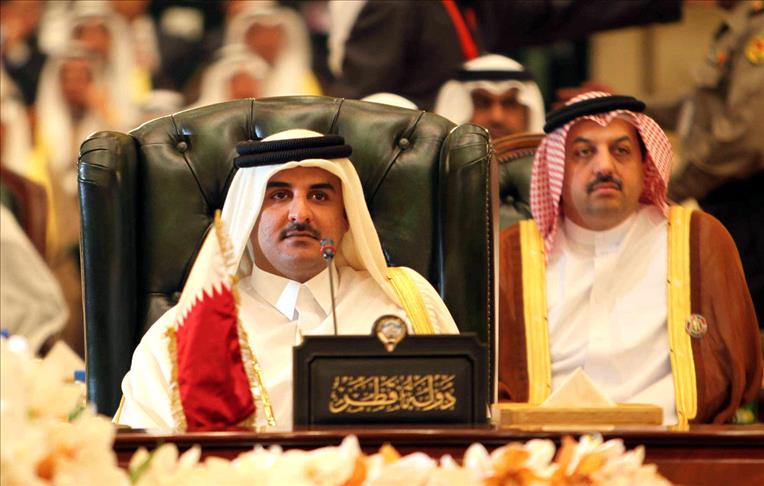
By Michael Hernandez
WASHINGTON
Requests for increased security assurances prompted in large part by Iran’s growing influence in the region are likely to dominate this week’s summit between Arab Gulf leaders and the Obama administration, according to experts.
Thursday’s gathering at the presidential retreat at Camp David, Maryland, and a White House dinner Wednesday, come amid growing unease within the Gulf Cooperation Council about Tehran’s ambitions in the region, and a possible larger rapprochement with the West as the Islamic republic continues nuclear negotiations with the U.S. and other world powers.
“This meeting has focused a spotlight on the Iran question,” said Joshua Landis, the director of the Center for Middle East Studies at the University of Oklahoma. “They’re going to beat the drums and the Republican Party is going to line up behind them, and some Democrats are too. It’s an effort to make a mark for the future in the presidential campaign, to shore up some support, and to show that they’re a force that can’t be dismissed.”
This week’s summit has already been hit with a string of underwhelming announcements just days before it begins.
Of the six-member regional council, only two heads of state will participate – emirs of Qatar’s and Kuwait.
Saudi Arabia formally announced late Sunday that recently installed King Salman would not attend the summit. Bahrain, the United Arab Emirates, and Oman announced that they too would send representatives in place of their respective leaders, including crown princes and ministers of defense and interior.
“They feel like they’re not getting what they want, and I think they saw this as a political stunt, and that they didn’t want to be part of it,” said Landis who also runs the online blog Syria Comment.
The official confirmations have prompted the White House to place a positive spin on what’s shaping up to be a less high profile gathering than was initially sought.
“These are the interlocutors who we work on these issues with on a daily basis,” deputy national security advisor Ben Rhodes told reporters on a conference call Monday. “We very much feel like we have the right group of people around the table to have a very substantive discussion – these are the people responsible for the security portfolios in each of the respective countries.”
Anthony Cordesman, the Arleigh A. Burke Chair in Strategy at the Center for Strategic and International Studies, further downplayed the recent announcements, saying, “when it comes down to the real expertise and in many ways the people who shape decisions, you don’t usually drag the head of state all the way to the United States.”
At stake for the Arab allies is increased security cooperation with the U.S., including increased arms sales and a more formally defined defense agreement.
“Obviously there is a great deal of concern about U.S. ties to Iran. There is perhaps even more of a concern that the U.S. provide more tangible security guarantees,” Cordesman said.
What shape any increased security cooperation takes has likely been a topic of significant negotiation for some time. The importance of those discussions is heightened by an ongoing Saudi-led bombing campaign in Yemen to thwart Iran-backed Houthi rebels, and the allies’ continued support for a U.S.-led coalition against Daesh.
“They’re going to want more planes and more hardware, particularly as they’ve got this Yemen war going and they’re going to need all kinds of stuff, and they’re going to need American forbearance,” said Landis.
But Washington’s concerns about the support several of its regional allies provide to Islamist extremist groups in Syria could imperil the increased assistance.
“I think this is the beginning of a very uncomfortable conversation with some U.S. allies that have been creating a lot of problems in the region. I doubt we are going to see a tremendously happy meeting,” said National Iranian American Council President Trita Parsi.
He cautioned that Washington may not want to more formally guarantee the security of its regional allies at a time when it is seeking alternatives to long-standing formulas for stability in the Middle East.
“It seems like the United States is trying to move away from the type of balance of power arrangement in the region to try to find a more holistic solution,” he said. “And the more you commit yourself to alliances in order to contain a third party, the more you are actually sowing the seeds of a longer term conflict,” he added.
Anadolu Agency website contains only a portion of the news stories offered to subscribers in the AA News Broadcasting System (HAS), and in summarized form. Please contact us for subscription options.

